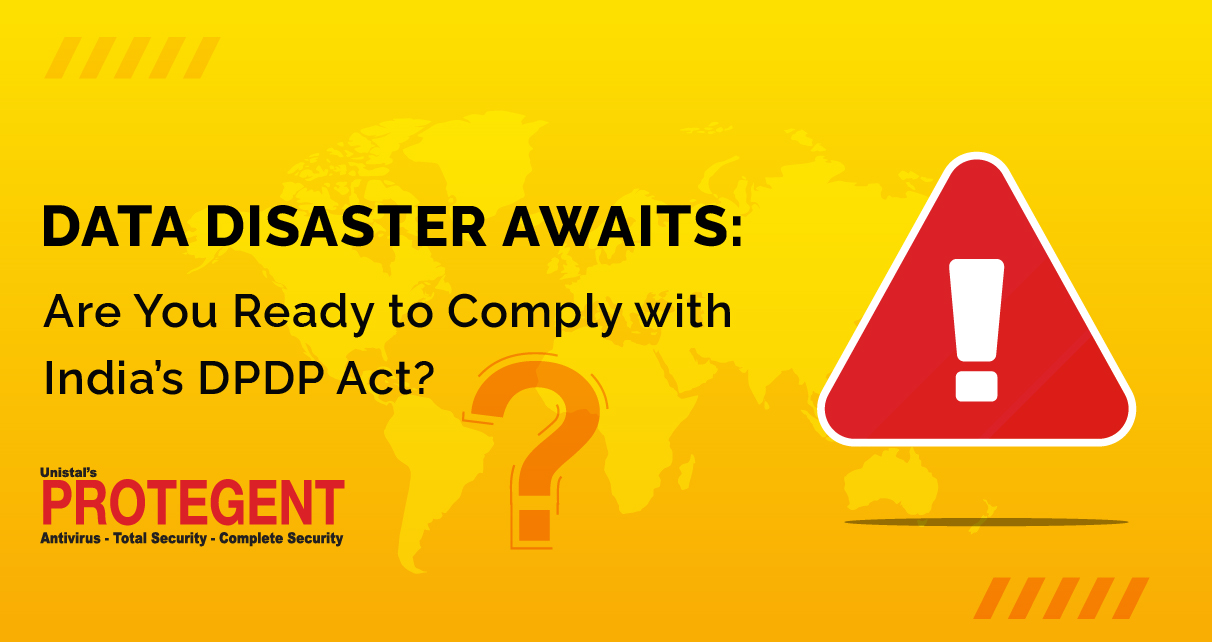
Data Disaster Awaits: Are You Ready to Comply with India’s DPDP Act?
Are you confident your organization manages data according to India’s new DPDP Act? With data breaches on the rise—over 70% of organizations reporting incidents tied to improper data disposal—this question has never been more pressing. As personal information increasingly attracts the attention of cybercriminals, businesses bear a significant responsibility to safeguard that data. The Digital Personal Data Protection (DPDP) Act isn’t just another piece of legislation; it serves as a crucial reminder for organizations to reassess their practices regarding managing, storing, and deleting sensitive information. Let’s explore the importance of effective data wiping for compliance and how it can protect your organisation and customers.
Understanding the DPDP Act
The DPDP Act protects personal data by setting clear guidelines on collecting, using, and processing it. Key aspects of the Act include:
- Consent Requirements: Organizations must obtain explicit consent from individuals before handling their data.
- Data Minimization Principle: Only necessary data should be collected and kept.
- Accountability Measures: Companies must implement strong data security practices, including proper data disposal.
Recent statistics show that 63% of consumers are worried about their data privacy, making compliance a legal obligation and a critical issue for maintaining customer trust.
Importance of Data Wiping
Data wiping is more than just deleting files; it ensures that sensitive information cannot be recovered. Here are a few reasons why it is essential:
- Protecting Personal Data: Inadequate data disposal can lead to unauthorized access, potentially resulting in identity theft or data breaches.
- Compliance with DPDP: Organizations that do not properly wipe data risk facing significant penalties, reaching up to 2% of their total global turnover.
Compliance Requirements
- Data Minimization: Collect and retain only the data necessary for your operations. Regularly evaluate what data can be deleted when it is no longer needed.
- Consent Management: Keep clear records of consent. When consent is withdrawn, ensure personal data is promptly deleted from your systems.
- Accountability: Develop clear procedures for secure data disposal, ensuring all employees understand their responsibilities regarding data management.
Best Practices for Data Wiping
- Use Reliable Data Wiping Software: Choose software that complies with industry standards, such as DoD 5220.22-M or NIST SP 800-88. Organizations using certified data wiping solutions report 30% fewer data breaches linked to improper disposal.
- Implement a Data Wiping Policy: Establish a comprehensive policy detailing the procedures for data wiping and designate responsibilities to specific personnel. Conduct training to ensure employees grasp the importance of data wiping.
- Conduct Regular Audits: Schedule audits every six months to assess compliance with your data-wiping policies. Maintain logs of all wiped data and devices to demonstrate adherence to the DPDP Act.
- Securely Dispose of Physical Media: For hard drives and other physical storage devices, consider methods like shredding or degaussing to ensure data is unrecoverable. About 50% of data breaches stem from improperly disposed devices, underscoring the need for strict disposal practices.
- Document the Wiping Process: Keep detailed logs of data wiping activities, including methods used and personnel involved. This documentation can serve as evidence during audits and help prove compliance.
Connecting with Unistal Data Wipe Software
To effectively address the challenges posed by the DPDP Act, consider using Unistal Data Wipe Software. Here’s how it can assist you:
- Comprehensive Wiping Solutions: Unistal offers various data wiping methods to ensure that data is irretrievable and meets regulatory standards.
- User-Friendly Interface: The software is designed to be intuitive, making it accessible to users of all technical levels.
- Compliance-Ready: Unistal’s solutions align with industry standards, helping you confidently navigate the DPDP Act’s complexities.
- Audit Trail: The software generates detailed logs and reports, simplifying the documentation of your data-wiping processes and compliance during audits.
- Versatile Use: Whether you’re wiping a single device or an entire network, Unistal adapts to your needs, making it suitable for businesses of all sizes.
Conclusion
As the digital landscape evolves, so must our data management and compliance strategies. The DPDP Act presents both challenges and opportunities for organizations in India. By prioritizing effective data-wiping practices and utilizing Unistal Data Wipe Software solutions, you can meet regulatory requirements and build customer trust. In a world where data breaches can have serious consequences, proactive measures are your best defense. Let’s take the necessary steps to protect personal data and create a safer digital environment for everyone.




